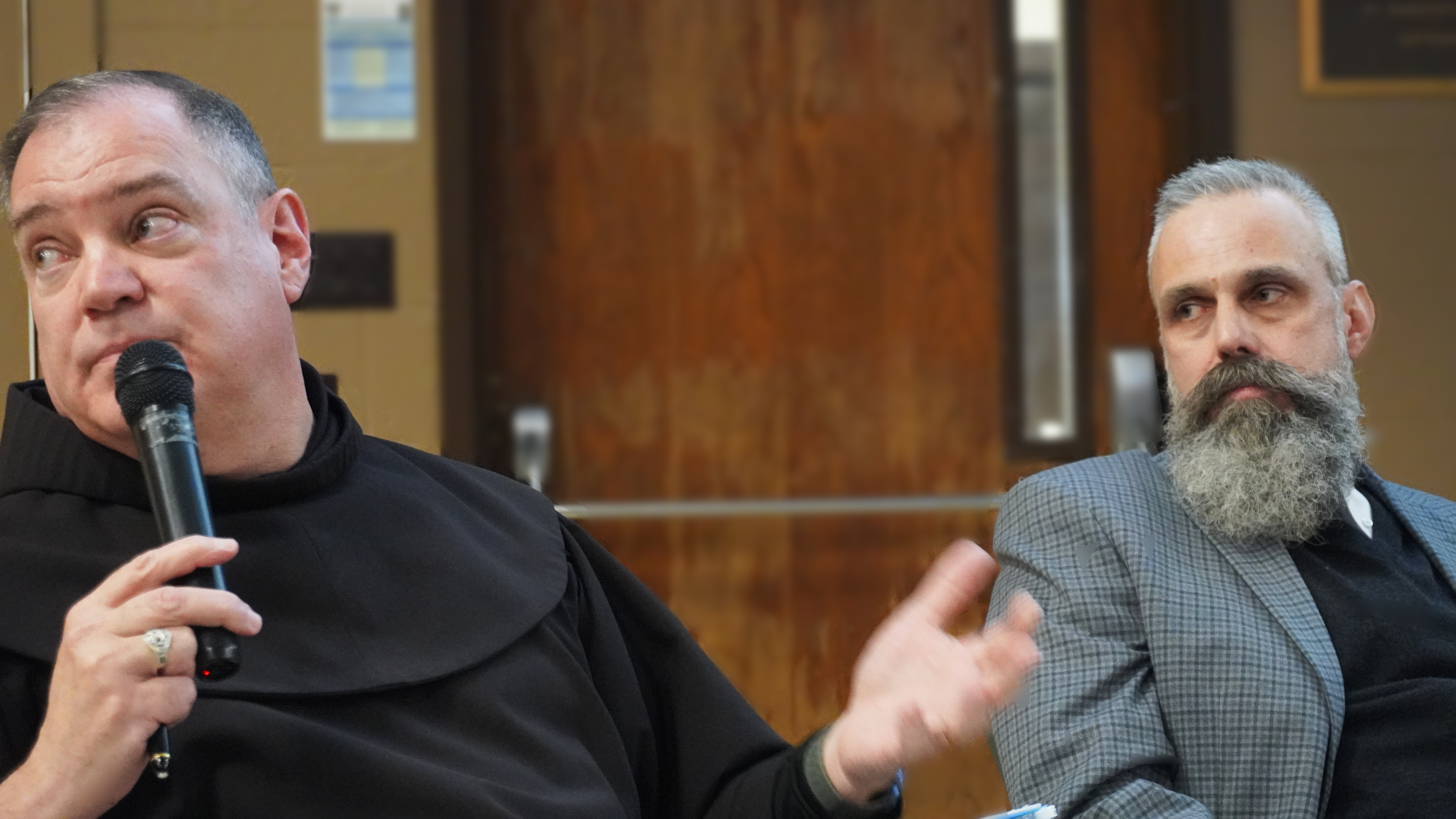A. Fuat Firat, Ph.D., delivered his keynote address “Globalization and Transformative Consumer Research” as this year’s Lenna Visiting Professor at St. Bonaventure on Tuesday.
The Lenna Endowed Visiting Professorship was established in 1990 as a gift from the late Betty S. Lenna Fairbank and Reginald A. Lenna of Jamestown. The program was created to bring scholars to the local area, at both Bonaventure and Jamestown Community College.
Firat, a marketing professor at the University of Texas- Rio Grande Valley, based his lecture on his most recent research in Transformative Consumer Research.
“Transformative Consumer Research is a very new, but very broad topic,” he said.
The lecture, which was tailored to business students, began with an explanation of globalization and its influence on the market.
“Globalization is a movement and integration of people, products, ideas, media— all kinds of cultural artifacts across the globe,” Firat said.
According to Firat, many marketing scholars believe that globalization did not exist until the 15th century. However, Firat said he disagrees.
“Humans were localized when they came to North America and the like, but I would like to argue that we were originally globalized [through migration],” he said. “We were a global race until animal husbandry and farming fueled localization.”
Firat also continued to refute the widely accepted idea that the beginning of modernity began in the Enlightenment.
“I think the real beginning was art, during The Renaissance,” Firat said. “They shifted from paintings of angels and devils to realizing ‘you know, the human is the center.’”
Firat believes that this realization of human identity was the catalyst into modern life, especially with the development of international borders.
“We are eroding nature and turning into culture,” Firat said. “When we look at all this history we realize the constitutional order of history is human events [as opposed to natural events.]”
The lecture also delved into the development of practical domains. According to Firat, these domains, political, social, and economic, were developed as a practical solution to handle globalization.
In addition to the detailed history and development of culture, the discussion briefly touched on the modern issues in the market, particularly the struggle of consumer identity.
According to Firat, consumers have often been used as “research”, to determine what products are and are not successful This can cause dishonesty between the producer and the consumer. Firat also said he believes that the best solution would be to create a platform where consumers would work together with large companies to further support their input in the market economy.
The ongoing growth of the Black Market, and other small marketplaces, has also put a strain on the relationship between consumers and large corporations.
“People can’t afford what the market provides, so they go to small marketplaces,” Firat said. “They need what they need as soon as possible.”
Firat finished his lecture with an emphasis on the misrepresentation of the market.
“Truly, it [the market] is a very rich, highly complicated, interconnected cultural system decompressed into a two-dimensional façade. When we ignore the cultural and historical influences on the market, the richness of the cultural experience is flattened.”
rootcm14@bonaventure.edu





